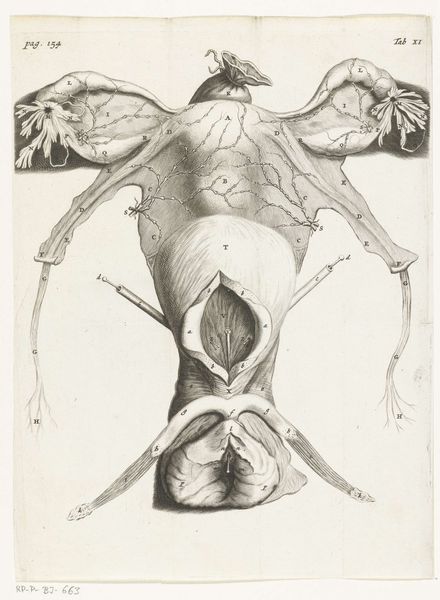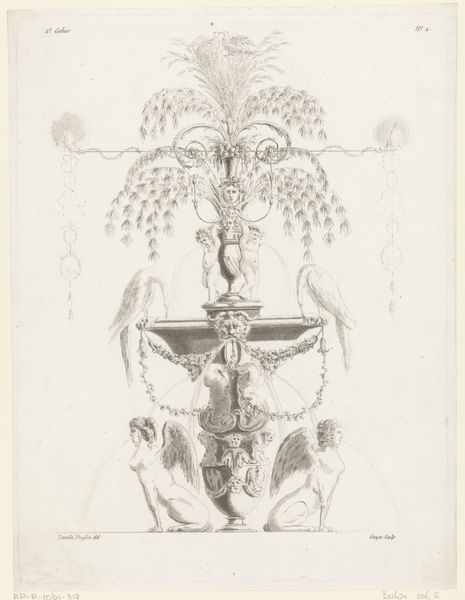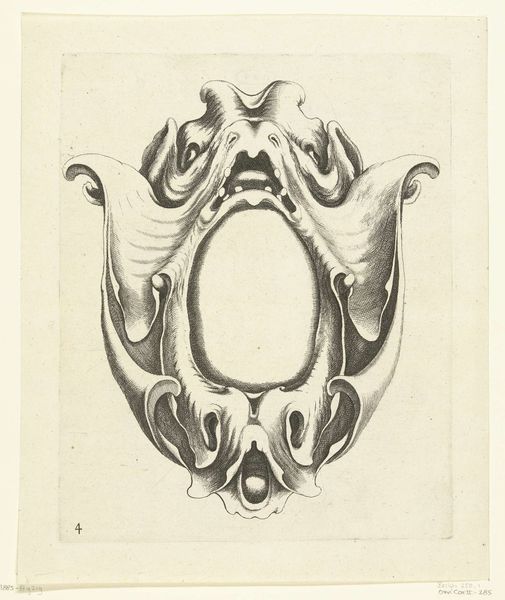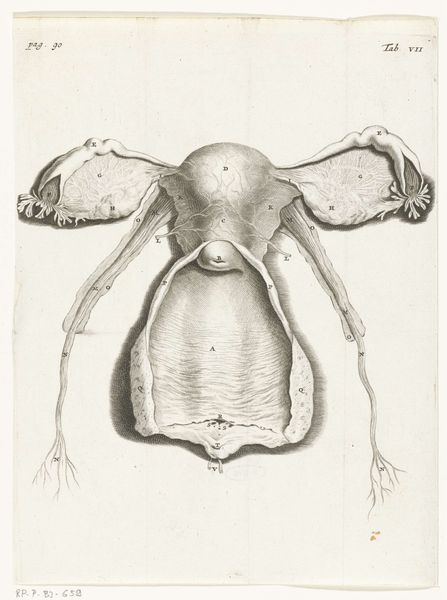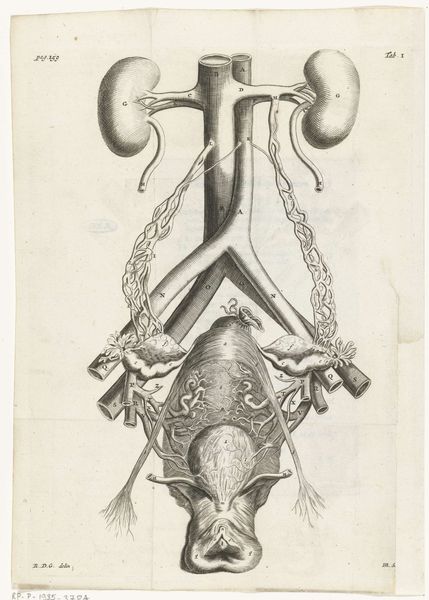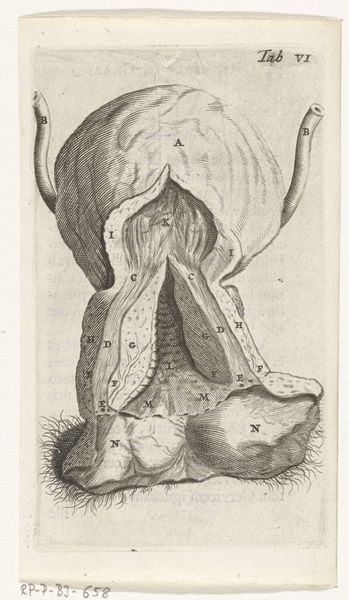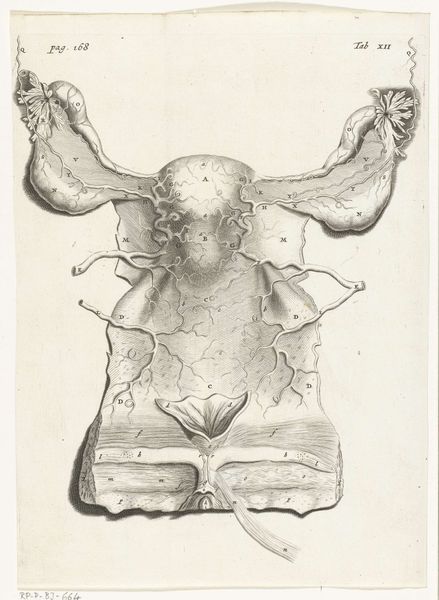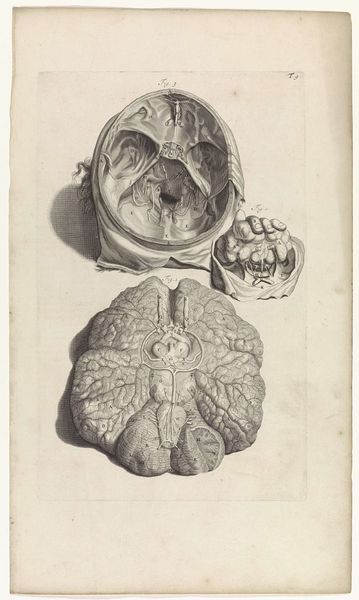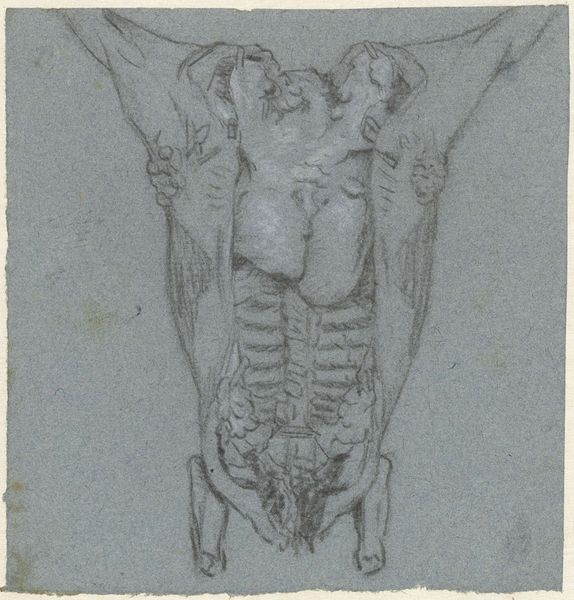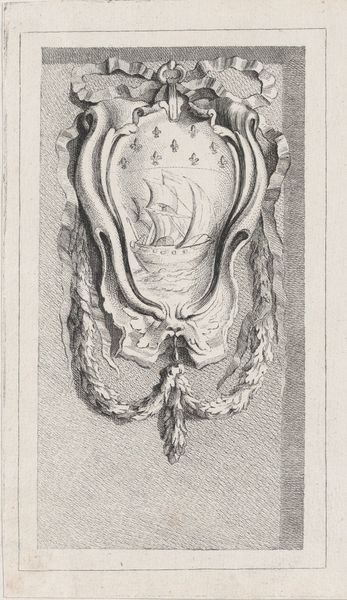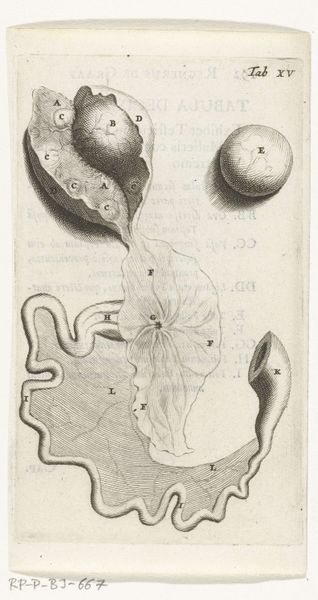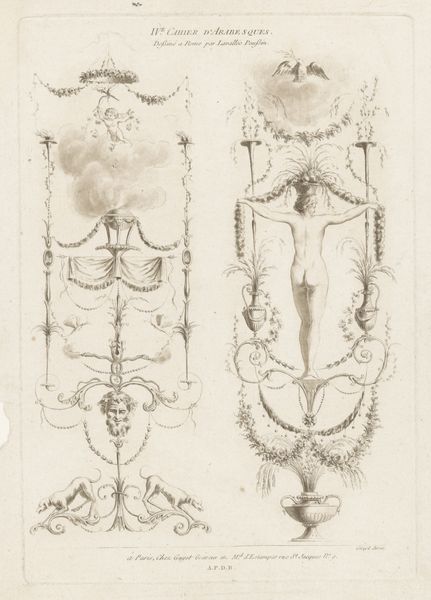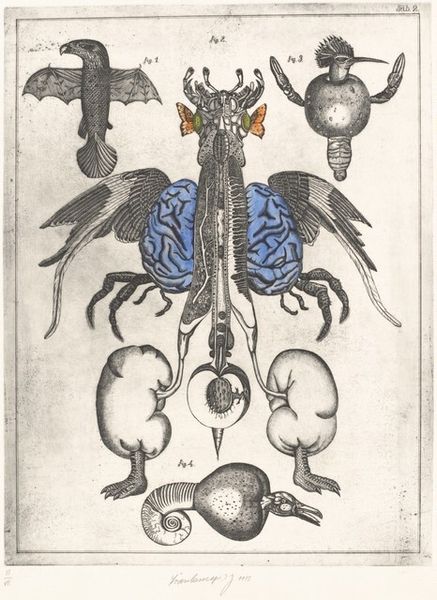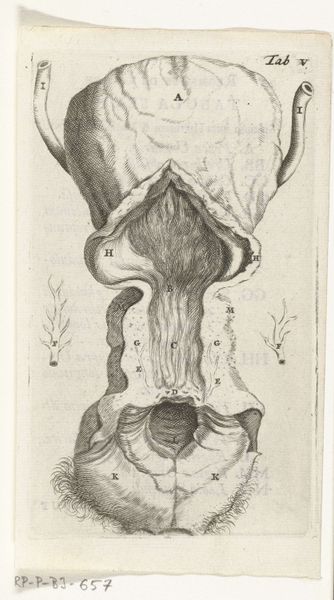
drawing, paper, ink, engraving
#
drawing
#
allegory
#
baroque
#
pen sketch
#
pencil sketch
#
paper
#
ink
#
history-painting
#
academic-art
#
engraving
Dimensions: height 278 mm, width 205 mm
Copyright: Rijks Museum: Open Domain
Hendrik Bary made this drawing of an enlarged Womb, sometime between 1640 and 1707. This detailed, almost fantastical depiction of the female reproductive system offers us a glimpse into the historical and cultural understanding of women's bodies during the 17th century. At the time, the male gaze dominated medical and scientific illustration, often shaping perceptions of female anatomy through a lens of mystery and, frankly, misinformation. What’s fascinating here is how the womb is not just presented as a biological entity but as a site of intense cultural and societal projections. The enlarged scale and detailed rendering seem to suggest both a scientific interest and perhaps an element of awe, or even fear, surrounding the generative power of the female body. Look at the figures connected to the womb, almost like muses whispering secrets. Do they represent the voices of women, often unheard in the scientific discourse of the time? This piece invites us to consider the historical power dynamics at play in the representation and understanding of female anatomy, and how those dynamics continue to influence contemporary discussions about women's health and reproductive rights.
Comments
rijksmuseum over 2 years ago
⋮
In 1672, physician and anatomist Reinier de Graaf published his De mulierum organis about the female reproductive organs, with anatomically correct prints by Hendrik Bary, and some with little jokes. De Graaf was the first to conclude that a foetus was the product not just of a man’s seed, but also of a woman’s egg. He discovered what he called blisters, which later became known as Graafian follicles.
Join the conversation
Join millions of artists and users on Artera today and experience the ultimate creative platform.
